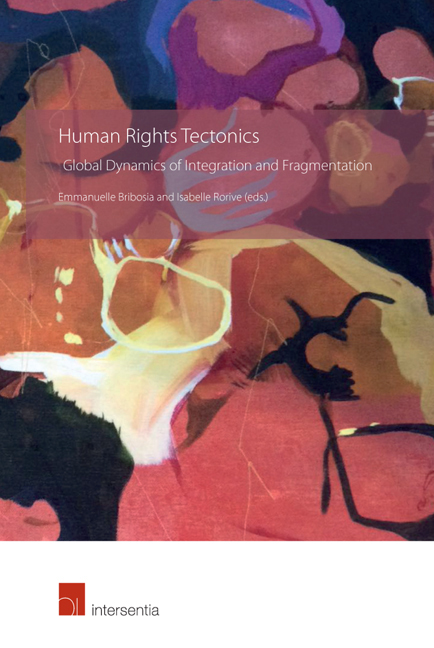Book contents
- Frontmatter
- Foreword
- Contents
- List of Cases
- List of Contributors
- Introduction to Human Rights Tectonics
- PART I PROMISES AND CHALLENGES OF AN INTEGRATED APPROACH TO HUMAN RIGHTS
- The Formation of a Common Law of Human Rights
- UN Special Procedures: System Puppets or User's Saviours?
- The African Court on Human and Peoples’ Rights: A Uniquely Equipped Testbed for (the Limits of) Human Rights Integration?
- The Role of Non-Judicial Bodies in Human Rights Implementation
- PART II HUMAN RIGHTS TECTONICS THROUGH AN ISSUE-BASED APPROACH
- PART III HUMAN RIGHTS DYNAMICS IN EUROPE
- About the Editors
The African Court on Human and Peoples’ Rights: A Uniquely Equipped Testbed for (the Limits of) Human Rights Integration?
from PART I - PROMISES AND CHALLENGES OF AN INTEGRATED APPROACH TO HUMAN RIGHTS
Published online by Cambridge University Press: 31 January 2019
- Frontmatter
- Foreword
- Contents
- List of Cases
- List of Contributors
- Introduction to Human Rights Tectonics
- PART I PROMISES AND CHALLENGES OF AN INTEGRATED APPROACH TO HUMAN RIGHTS
- The Formation of a Common Law of Human Rights
- UN Special Procedures: System Puppets or User's Saviours?
- The African Court on Human and Peoples’ Rights: A Uniquely Equipped Testbed for (the Limits of) Human Rights Integration?
- The Role of Non-Judicial Bodies in Human Rights Implementation
- PART II HUMAN RIGHTS TECTONICS THROUGH AN ISSUE-BASED APPROACH
- PART III HUMAN RIGHTS DYNAMICS IN EUROPE
- About the Editors
Summary
International human rights law is embedded within international law that is fragmented by design. At the same time, human rights law itself forms a fragmented universe, on account of both its multilevel architecture and governance – comprising universal, regional and subregional levels of protection – and the (over-)specialisation of the field. Against this background, human rights integration is seen as a means to mitigate certain challenges associated with this fragmentation. Human rights integration may also be an opportunity to restore focus on the user(s) of the human rights system and on the arguments that can be employed with the aim of framing an individual's claim and calling for the highest possible level of protection across diff erent regimes and specialities.
Within the confines of positive law, human rights integration can be pursued on three different levels/stages: first, when States drafta human rights treaty; second, when an international court or other international body interprets that treaty; and third, when the treaty is applied. Human rights integration is, accordingly, constrained by the limitations attached to these three different tasks. In this regard, this chapter argues that the African Court on Human and Peoples ‘ Rights (ACtHPR) is uniquely situated to pursue human rights integration. This is due to three distinctive features pertaining to the African Charter on Human and Peoples ’ Rights (ACHPR)and the ACtHPR's mandate. First, the indivisibility, interdependence and inter-relation of human rights are not merely underlying principles and postulates, but are specifically entrenched in the text of the ACHPR; the ACHPR provides civil and political rights alongside economic, social and cultural rights and peoples ’ rights. Second, the ACtHPR enjoys the jurisdiction to interpret and apply not only the ACHPR but also any other relevant human rights instrument ratified by the State(s) concerned. Hence, the ACtHPR enjoys a considerably broader mandate ratione materiae vis- a -vis other international human rights courts. Third, the ACtHPR is specifically directed by Articles 60 and 61 of the ACHPR to draw inspiration from other international instruments when interpreting the rights envisaged in the ACHPR.
This chapter discusses two out of these three distinctive features in connection with human rights integration. The analysis on the ACtHPR's jurisdiction merits separate discussion and it will not be covered in this chapter.
- Type
- Chapter
- Information
- Human Rights TectonicsGlobal Dynamics of Integration and Fragmentation, pp. 69 - 88Publisher: IntersentiaPrint publication year: 2018



